Exclusive: Liberal Democrat leader Sir Vince Cable calls for routine HIV testing by GPs
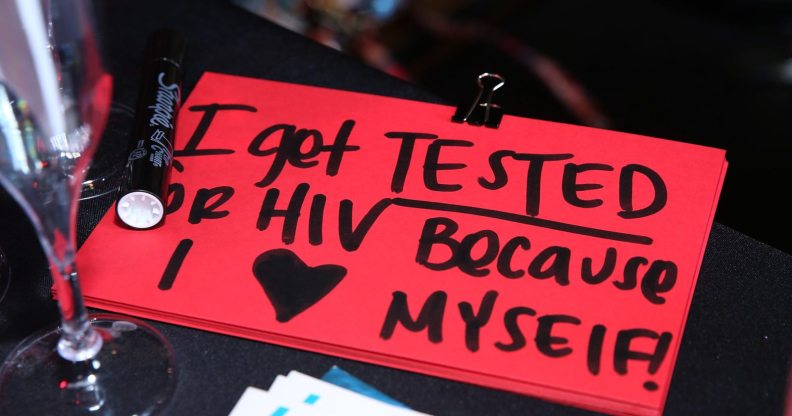
National HIV testing day (Jonathan Leibson/Getty Images for The Elizabeth Taylor AIDS Foundation)
PinkNews Exclusive
The Liberal Democrat leader has called on GPs to routinely test new patients for HIV.
Sir Vince Cable says the tests should become commonplace in high prevalence areas in a bid to cut the number of people do not know their status.
The comments come after a report by Public Health England showed a one fifth fall in gay and bisexual men diagnosed with HIV during 2016.
New figures show a 21% fall in new HIV infections among men who have sex with men (MSM) and a fall of 18% among the UK population in general.
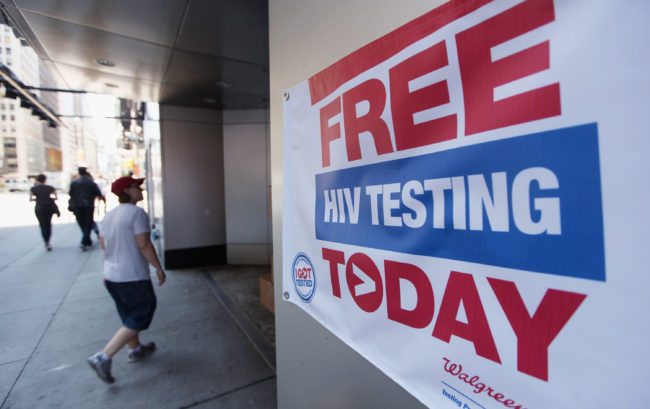
Sir Vince Cable told PinkNews: “Whilst it is very welcome that new HIV diagnoses are down for gay and bisexual men in London we must not be complacent in our battle against HIV or ignore the wider picture.
“It has killed too many people and ruined too many lives.
“There have been extraordinary strides in HIV prevention and awareness that is now seeing clear results in the gay community, but there is still more the government can do.
“For example, routine HIV tests when you register with a GP or are admitted to hospital is still not common practice in high prevalence areas.
“Too many people are still completely unaware that they are living with HIV and this has to change.
“The Liberal Democrats will therefore continue to advocate for a more proactive approach to tackling HIV and continue our fight to ensure the government makes Pre-Exposure Prophylaxis (PrEP) for HIV prevention available on the NHS.”
Sir Vince’s comments back guidance by the British HIV Association that people living in high-prevalence areas for HIV infections should be routinely offered an HIV test when they register with a GP or are admitted to hospital.
An investigation found 82% of high prevalence areas were failing to offer HIV tests in accordance with the guidelines, while 70% did not fund HIV testing at all GP surgeries.
The significant fall in new infections has been called “the most exciting development in the UK HIV epidemic in 20 years” by Public Health England.
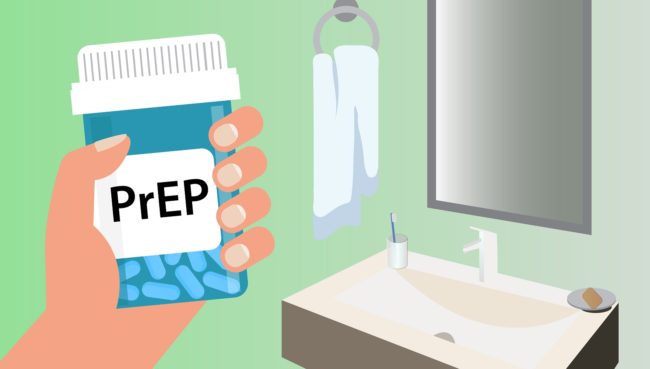
Pill Bottle over Gay Flag with label “PrEP” (stands for Pre-Exposure Prophylaxis). PreP treatment is used to prevent HIV infection
EXPLAINED: What is PrEP and where can I get it?
Their report credits access to PrEP, an HIV prevention pill, with the decline in new infections, saying there “will be further strengthened with the implementation of the PrEP Impact Trial over the next three years.”
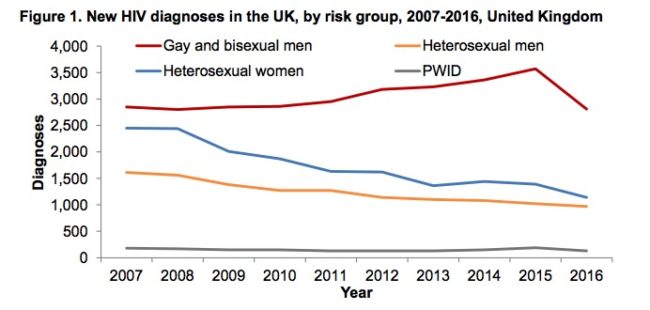
An NHS England spokesperson said: “The new figures out today show that NHS investment in HIV prevention is paying off.
“High rates of effective treatment in people with diagnosed HIV, our Treatment as Prevention policy which ensures that people receive treatment to protect HIV negative partners and our major intervention with PrEP, which will be up and running by the end of this month, will supercharge these increasingly successful efforts to prevent HIV.”
The decline in HIV diagnoses in gay and bisexual men is particularly focused in parts of London, where diagnoses decreased by 29% from 1,554 in 2015 to 1,096 in 2016.
Outside of London, the fall was 11% among this group.
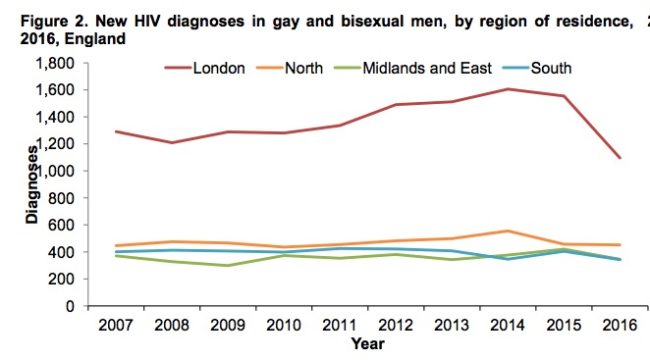
Despite the good news, the number and proportion of diagnoses made at a late stage of HIV infection remains high, particularly among heterosexual men and women.
32% of gay and bisexual men were diagnosed at a late stage, while the number was almost double for heterosexual men at 60%.
Late diagnosis is associated with a higher risk of short term mortality and increased risk of onward transmission, since those diagnosed late have been unaware of their HIV infection for around three to five years.

